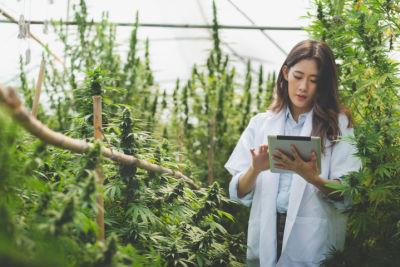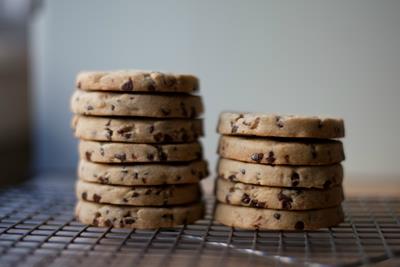
Tuesday June 25, 2019
By Erin Hiatt
 Education
Education
Even though legal cannabis markets have been at the forefront of incredible innovations in science and technology, one lingering stereotype remains: the lazy stoner. Picture in the foreground a bong on a coffee table, and on the couch in the background sits an unmotivated 20-something clicking listlessly through TV channels, still dressed in pajamas with un-brushed hair while holding a bag of Cheetos. This image, while enduring, has really gone the way of the word “groovy.” The cannabis world is full of entrepreneurs running their own businesses, celebrities blazing new paths through cannabis culture, and everyday consumers using cannabis to enhance creativity, and hatch new ideas. It’s true, new era cannabis consumers are indeed breaking past stigma and there are even some people believe cannabis makes them more productive. Could this be true? Could cannabis actually make consumers more productive than their sober counterparts?
Cannabis Data Misconceptions
There are many studies that have shown that long-term cannabis consumers and those who started using at a young age are likely to have lower levels of dopamine, a neurotransmitter that helps to control the pleasure and reward centers in the brain. Sometimes referred to as “amotivational syndrome,” (AMS) it has been linked to a lessening in motivation and lack of desire, apathy, poor concentration, and decreased interest.
However, lower levels of dopamine can also be can also be experienced by those who become dependent on cocaine, methamphetamine, or other drugs. Additionally, AMS does not seem to take into account other conditions, like depression.
The science behind AMS is cursory at best and cannot be blamed entirely on cannabis, as some organizations like the U.S. Department of Health and Human Services have intimated. Dr. George Simon believes that people who show symptoms of AMS seem to have one thing in common. Addiction to things like cannabis, video games, and pornography – in other words, activities that deliver instant gratification – all experience drops in dopamine.
The Reality About Cannabis Consumers
Sure, there are undoubtedly some people who fit the “stoner” mold, but the truth is that most cannabis consumers are a world apart from the common stoner stereotype. A 2017 poll from Yahoo News and Marist University found that around 55 million Americans use cannabis. Fifty-four percent of those 55 million are parents, the majority of whom have children under 18. Most said that they chose to use cannabis to relax.

There are many other demographics that you might be surprised to find consume cannabis. The elderly, for example, are America’s fastest growing demographic for cannabis consumption and are using the plant to treat a variety of ailments. Working professionals who keep their consumption discreet also make up a large portion of the cannabis market. To be quite honest, it’s pretty likely that you know several cannabis consumers who are under the radar about their habits – especially if you live in a state where cannabis is illegal.
Tips for Staying Productive With Your Cannabis Usage
Countless “normal” and productive members of society use cannabis for a variety of reasons without ever attracting the stoner stereotype. If you do find that using cannabis makes you feel less motivated though, there are some hacks to help you use cannabis to your benefit.
Ask Yourself Why
If you want to dial in your personal approach to cannabis consumption and cater it toward a productive lifestyle, a good starting place is to figure out what you use cannabis for. Relaxation? Enhanced creativity? Medicine? If you find that you use it for medicine, for example, but cannot get through the day effectively because of a morning toke, consider trying a high-CBD low-THC strain. If enhancing creativity is on the agenda, schedule creative endeavors when you know you can dedicate time to the task at hand and whether cannabis will be beneficial to that process.
Know Your Strains

There is a strain out there for practically anything, and here at PotGuide, we have a comprehensive strain guide to assist in your search for the perfect strain to enhance all of your daily endeavors, whether creative, innovative, calming, or healing.
Define “Productive” for Yourself
“Productive” is a loaded word that can be interpreted a million different ways. The important thing is to know what it means to you. For some, productivity may mean working quickly and efficiently to free up time later in the day, whereas for others, productivity may include time to dream, brainstorm, and innovate. Once you decide what productive means for you, knowing how cannabis fits into that becomes much easier. It seems that cannabis consumers that have a healthy relationship to the plant are at least as productive – and hopefully a bit more relaxed – than their non-consuming counterparts. Cannabis affects everyone differently though so conduct some trial and error for yourself to come up with a conclusion that makes sense for you!
Do you think cannabis consumers are more or less productive than non-consumers? Why? Share your thoughts in the comments below!
Photo Credit: Cathryn Lavery (license)







